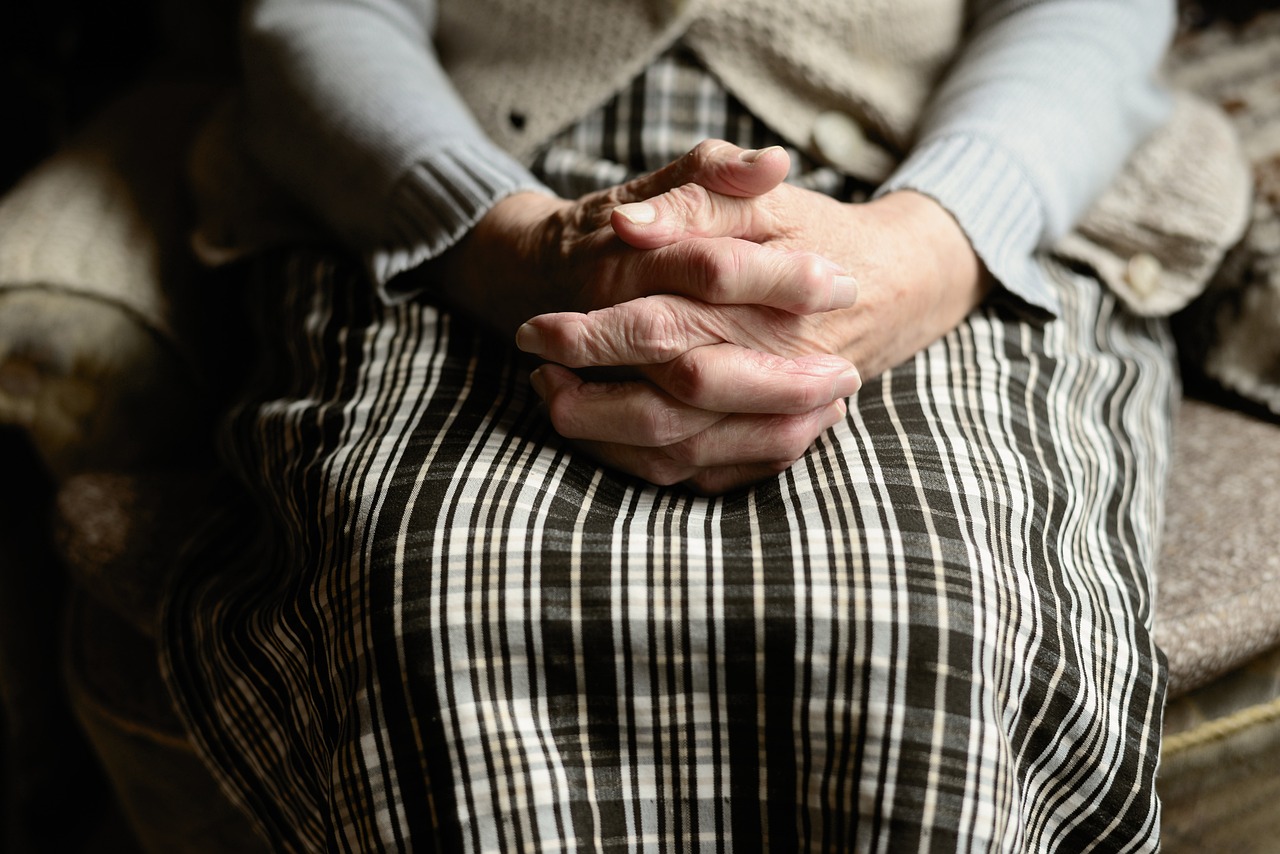- All
- Wisdom
- We Stand on Their Shoulders
- Vocation
- Uncategorized
- Stories Seldom Heard
- Spirituality
- Social Justice
- Prayer
- Peace
- Oneness
- Love
- Letting Go
- Lent
- Joy
- Inspirational Images
- Hope / Healing
- Holy Week
- Gratefulness
- God's Presence
- General News Stories
- Forgiveness
- Finding God
- Faith
- Easter
- Dominican Saints
- Discipleship
- Courage
- Christmas
- Catholic Sisters Week
- Care of the Earth
- Blessing
- Beauty
- Advent
- #justiceOPportunity
Mark 7:24 – Syrophoenician Woman
Sr. Patricia Bruno, OP

296th Edition March 2024
 Part of our Lenten practice is to be especially attentive to prayer. We might not be able to attend Mass every day, but taking fifteen or twenty minutes of quiet time each day for prayer is important. Anne Lamott, whose books have been on the “New York Times Best Sellers List,” describes her discovery and practice of prayer in her book entitled Help, Thanks, Wow. It doesn’t sound like a religious book or a book about prayer, but it is. It might be a good read for Lent because she opens our eyes to the miracles in our daily lives. “Help:” Anne prays for strength and courage to meet the difficulties in her life. “Thanks:” God hears her prayers. “Wow:” God does more than Anne could ever imagine. Help, Thanks, Wow also sounds like a good title for the Syrophoenician woman’s story.
Part of our Lenten practice is to be especially attentive to prayer. We might not be able to attend Mass every day, but taking fifteen or twenty minutes of quiet time each day for prayer is important. Anne Lamott, whose books have been on the “New York Times Best Sellers List,” describes her discovery and practice of prayer in her book entitled Help, Thanks, Wow. It doesn’t sound like a religious book or a book about prayer, but it is. It might be a good read for Lent because she opens our eyes to the miracles in our daily lives. “Help:” Anne prays for strength and courage to meet the difficulties in her life. “Thanks:” God hears her prayers. “Wow:” God does more than Anne could ever imagine. Help, Thanks, Wow also sounds like a good title for the Syrophoenician woman’s story.
When we meet the Syrophoenician woman she is certainly in need of help. Her daughter is seriously ill. We understand the woman’s desperation. If someone we love were suffering physically or emotionally, we would do anything in our power to help them find healing. In fact, recently, a friend of mine whose daughter was going through a tough divorce said: “Even though the doctor cuts the umbilical cord, your child is always a part of your life. It’s as though you wear their heart on your sleeve.” Our children’s joys are our joys. Their agonies are our agonies. Their transitions, divorces, child-birthings, successes, and promotions are all part of our lives. This is true for us and it was especially true in Jesus’ culture. In fact, it was even more pronounced because childbirth and life were so precarious in those ancient days.
However, even knowing this, it must have taken much prayer and courage for the Syrophoenician woman to approach Jesus and ask for help. To ask for help from anyone is hard even if we are asking a family member or a friend. No one wants to admit their neediness. To ask a stranger is quite stressful and frightening. But nothing was going to stop this woman because the stakes were too high. Her little daughter, her own flesh and blood was seriously ill.
The woman must have felt she was walking into a lion’s den when she went to the house where Jesus was staying. He was not only a stranger, but also there was a history of bad blood that marked the relationship between the Jews and Gentiles. That alone could have been enough to cause the woman to second guess her decision, but there was more. Jesus, the preacher, had traveled to Tyre, a Gentile region, to secure his anonymity. Right before this passage Jesus was teaching, healing and preaching. So he went to Tyre for some peace and quiet. Even he could feel preached out, prayed out and tuckered out.
Some people say that God is the gift of desperation. In other words, once we have tried every creative plan we can think of and all of our best ideas have failed, it’s only then that we turn wholeheartedly to God. Some people might question if this kind of prayer is really prayer, but that’s not a question for Jesus. Jesus didn’t ask the Gentile woman how often she prayed or to whom she prayed. After their initial confrontational conversation all Jesus said was, “Because of your words, your daughter is cured.” What an amazing story! What an amazing response from the woman. She didn’t ask for proof. She had no evidence of her daughter’s cure. She just trusted and believed Jesus’ words.
She believed more in Jesus than she did in the death-dealing powers that were encircling her daughter each day. She might have been desperate, but she trusted him and his power to heal, more than her fears or the demons that threatened her daughter’s life. She didn’t need the whole loaf of bread. She was convinced that even a crumb from the table would be more than enough. She was right!
It’s a tough story because we don’t like to hear of Jesus being so harsh and prejudiced, especially with a woman, a mother whose daughter is possessed by a demon. Even though it’s so unlike the other scripture passages, it’s still disconcerting to hear of Jesus’ impatience and blindness. But the woman’s faith changed everything. “Because of your words, you may go home.”
Her faith changed Jesus’ mind and because of that, she is our ally. She’s a Gentile like us and an ordinary person. She’s a person in need of help, help that only Jesus can give. Her circumstances might be somewhat different from ours, but she’s our ally because like her many of us or our family members are threatened by demons. These demons disrupt our lives and destroy relationships. Unresolved anger, anxiety and fears can cripple us and control our actions. She is also our ally because she teaches us about God – about surrender and openness to God’s Spirit. She teaches us what it means to have our love for another person drive our prayer, deepen our faith. She reminds us that when we pray for others, even if they are at a distance, healings do occur. She teaches us that healing doesn’t always come the way we expect. Jesus didn’t go to her home. He didn’t touch her child. He didn’t demand the demons to leave her daughter. No, it wasn’t the way she thought it would work or the way she had planned. Yet, she trusted and healing came. Don’t you wonder what she was thinking and feeling as she left Jesus and walked home?
We know the end of the story, but she didn’t. Yet, she believed in him. Like the woman, we too, pray and trust in Jesus’ promise. Even though we don’t know the end results of many of our prayers, we too, believe.
The Syrophoenician woman is our true ally. She reminds us once again that God does not play by our rule book. God is not limited by our expectations. The God we pray to isn’t a magician who will pull peace out of a hat. God is not a genie who will make our every wish, even the good ones, come true on our time schedule or in the way we expect. Rather God is a God of mystery. Every time God fails to meet our expectations another one of our idols is destroyed. With each failed expectation, we are lured deeper into the mystery of God.
The Syrophoenician woman is a great teacher. She teaches us that we are blessed when we do not let our expectations blind us to what God is doing in our lives. We are blessed if we keep a list of what God is doing and forget what we think God should be doing. We are blessed if we can let go of our stingy imaginations and be surprised by God’s vision for us. We are blessed if we can revise our expectations and trust that God will never abandon us, especially in our darkest hour.
The story of the Syrophoenician woman ends rather abruptly and without much elaboration. But that doesn’t keep us from imagining what she heard when she arrived home. Cries of joy and celebration — prayers and songs of thanksgiving must have met her as she entered the courtyard. If the Syrophoenician woman was with us today and we asked her to simply tell us of her experience, she might describe it in three simple words. She might use Anne Lamott’s description of prayer: Help, Thanks, Wow.
